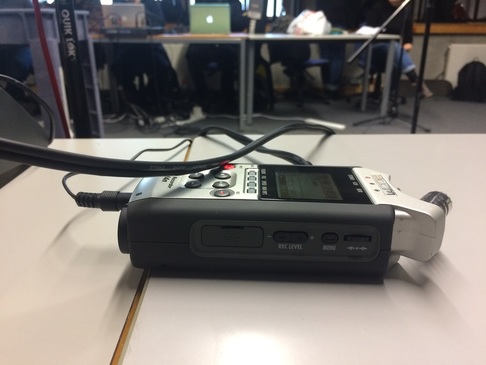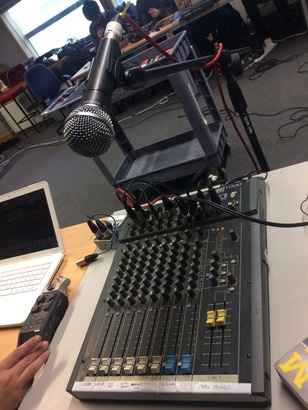IMPROVISING; Developing a critical language (with David Toop)
|
What is my instrument?
What is my vocabulary? What elements am I dealing with? What am I able to use? What elements are you dealing with? Week 1 Trumpet / Ice Week 2 Playback / Trumpet / Mouthpiece Week 3 Voicing and Silent Breaking (the formation of words within the verbal language) Week 4 Record & Repeat (Playback) Week 5 Vocalising the Written Page (silent reading) Week 6 (Breaks Break the continuity) Memory and Recite Collaborating ... Composing a Diary of Sound. |

DT
"Any sound has the potential to be interesting. It really depends on the situation in which you hear it or how receptive you feel when you hear it. Sometimes a sound is not at all interesting in itself but it can have associations with another event and so that gives it more life, or more resonance at a personal level. Some sounds are to be avoided but then you might find you can use them, just by listening harder, without prejudice." "To get better at doing that we play simple exercises - play only three sounds in five minutes, for example, or play in small grouping basing the music on three words, like ‘reducing’, 'holding’ and 'emptying’. It’s not easy because everybody has their own personal tastes, their own level of skill and interest, but gradually a sensitivity to the group emerges, a concentrated listening that allows each person to work in their own way without feeling compromised and without destroying the contributions of others." (http://tatecollectives.tumblr.com) |
